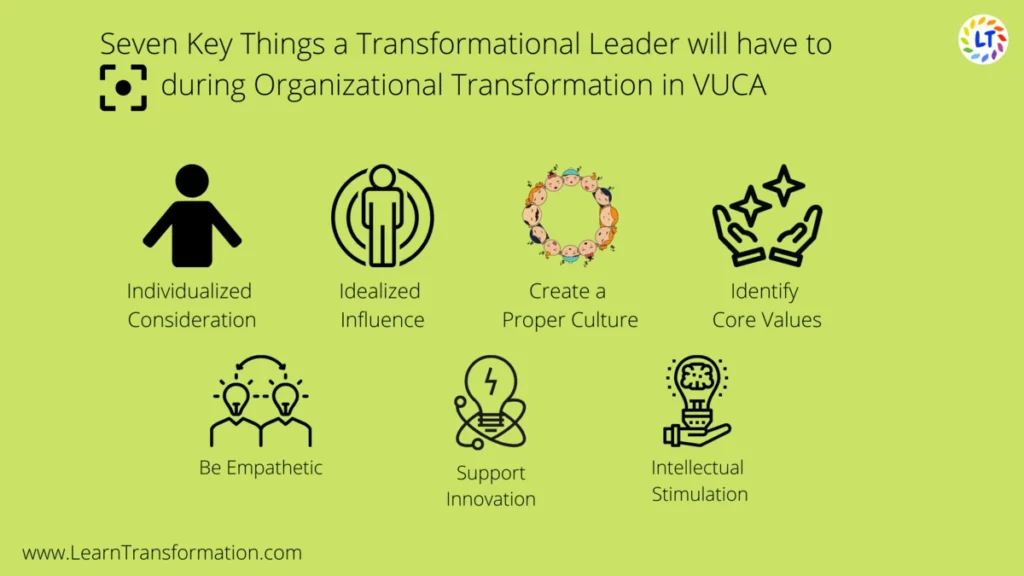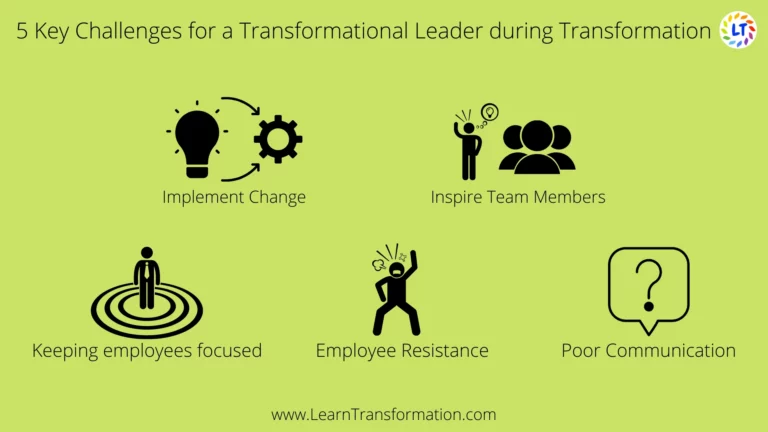Change is the law of life and those who look only to the past or present are certain to miss the future.
John F. Kennedy
Organizational transformation is unavoidable. So, Like all living things, organizations should constantly adjust themselves to accommodate the wave and flow that goes on within the business environment in which they prosper and thrive in VUCA.
Corporate Transformation
Corporate transformation is a term used for depicting how essential changes are made in an organization and how it runs. Furthermore, This encompasses personnel, procedures, and technological advancements. Therefore, These transformations enable organizations to strive more effectively, evolve more efficiently, and have productive Corporate strategies to work upon. Corporate transformations are usually courteous, and seismic changes that businesses go through for stimulating change and growth that is beyond the normal incremental developments.
Organizational Transformation
This is the starting point for all transitions in an organization and it involves redesigning an organization’s hierarchy, how it operates, along with professional exercises to facilitate it to work differently and more efficiently. So, Organizational transformation is a consecutive and growing process where the major emphasis is on the employees, they should be supportive and enthusiastic to ensuring success in the VUCA environment.
Handpicked for our Leaders: What is Strategic evaluation?
5 Key Challenges for a Transformational Leader in VUCA Environment-
1. Implement Change
Leading the change is one of the challenges for transformational leaders. It is one thing to sell a dream, but another thing is to make it happen. Hence, Transformational leaders should empower their team members to achieve change. Motivate them during tough times, and make them learn to deal with resistance, which is inevitable in the VUCA World.
2. Inspire Team Members
The second challenge for transformational leadership is to inspire his team members with a compelling vision of the future. So, A transformational leader should give his team members hope for the future and show them that their concerted efforts can create a future that benefits every person and the organizational culture.
3. Keeping them focused
The lack of focus can leave an enormous impact on the culture of the organization and it also sets a precedent for future projects to probably get failed. Hence, A transformational leader should keep his team members focused on the goal that they are collectively working on by constantly motivating them and keeping them engaged for better transformation.
4. Employee Resistance
We are aware of the fact that resistance is a function of disruption and transformational change generally results in some major levels of resistance in an organization’s culture. Thus, The transformational leader should have a plan for how that resistance will be sourced and managed among his team members.
5. Poor Communication
For effective implementation of transformational leadership in the organization. Thus, the leader must ensure the implementation of proper communication. The leader can effectively perform their jobs and responsibilities with the help of proper communication as it also serves as a base for planning in VUCA World.
Hand-picked for you- Leadership Styles in 21st Century
Leader’s Tip
To engage employees in the change process, foster an open communication and cooperation culture.
7 Key Things to Focus on During Organizational Transformation in VUCA

1. Individualized Consideration-
It is the extent to which a leader attends to each of his follower’s needs and acts as a mentor, and coach to his follower. Moreover, Through this, the leaders become aware of the unique talents that each follower brings to the workplace. And also, supports them in developing these key skills for development in VUCA.
2. Idealized Influence
Transformational leaders who show the traits of idealized influence are the best role models for their followers as they engage in high standards of ethical behavior. So, Transformational leaders usually have very high standards of moral and ethical conduct and followers identify such leaders, and want to imitate them, leading to effective transformation.
3. Create a Proper Culture
Company culture is becoming an important aspect of the organization. Hence, Establishing the proper culture will help the leader to create the collective enthusiasm among their team members that are necessary for a successful organizational transformation. Hence, This particular leadership perspective can go a long way in the organization.
4. Identify Core Values
A transformational leader should focus on defining and clarifying the organizational values. Thus, to set a new goal, the leader should identify the need of the situation and come up with a proper strategy. Thus, Transformational leaders should simply focus on familiarizing themselves with the process of identifying and implementing correct methods in VUCA environment.
5. Support Innovation-
Most creative ideas usually come from employees within your organization who spends the most time in the organization. So, Transformational leaders should embrace their creativity by making sure that the workplace culture encourages the sharing of suggestions, improvements, and ideas from team members.
6. Be Empathetic
A transformational leader should also focus to individually know the people they work with and in a context that’s wider than their role in the organization culture. Furthermore, This will help the leaders to better understand how they will react to changes, how to approach feedback with them, and even what tactics and tools can be used to motivate them.
7. Intellectual Stimulation
It is the degree to which the transformational leader encourages creativity in his team members. furthermore, Intellectual stimulation is very important to maintain in the team members and the leader can do this by challenging assumptions, brainstorming ideas, and taking risks. The team members can be encouraged to ask questions, think deeply, and find a better way to perform tasks during transformation.
Leader’s Tip
Establish defined goals and a roadmap to ensure alignment with the organization’s vision and values.
Best Video for you
Conclusion
At last, Transformational leaders play an important role in an organization as they build a vision for their team members. And direct them through the path of change by inspiring and motivating them. So, They are outstanding role models, and their followers try to mimic many of their useful actions. They also motivate the followers by prompting their self-efficacy. Thus, that they believe that they can perform beyond expectations in VUCA.
4 Best Lean Principles Book
👉 Global Reader’s Click Below:
- A Factory of One: Applying Lean Principles to Banish Waste and Improve Your Personal Performance
- The 12 Principles of Manufacturing Excellence: A Lean Leader’s Guide to Achieving and Sustaining Excellence, Second Edition
- The Lean Six Sigma Pocket Toolbook: A Quick Reference Guide to 100 Tools for Improving Quality and Speed
- The Lean Turnaround: How Business Leaders Use Lean Principles to Create Value and Transform Their Company
👉India Reader’s Click below:
- Lean IT – Principles to Practice: Toyota Way to Create Value for the Customer & Wealth for IT Organization
- Creating a Lean R&D System: Lean Principles and Approaches for Pharmaceutical and Research-Based Organizations
- Lean Principles and Application in BPO
- The Principles of Product Development Flow: Second Generation Lean Product Development
FAQs
What is Organisational transformational change?
This is the starting point for all transitions in an organization and it involves redesigning an organization’s hierarchy, how it operates, along with professional exercises to facilitate it to work differently and more efficiently. Organizational transformation is a consecutive and growing process where the major emphasis is on the employees, they should be supportive and enthusiastic to ensuring success in the VUCA environment.
What is Organisational transformational change?2) What does organizational transformation require?
Organizational transformation require:
- Individualized Consideration
- Idealized Influence
- Create a Proper Culture
- Identify Core Values
- Support Innovation
- Be Empathetic
- Intellectual Stimulation
Key Takeaways
- To achieve employee buy-in and drive successful change, transformation requires strong leadership, a clear vision, and effective communication.
- Accept innovation and adaptation as necessary elements of corporate and organisational transformation.
- Invest in establishing a change-ready staff by offering training and assistance in navigating the transformation process.

